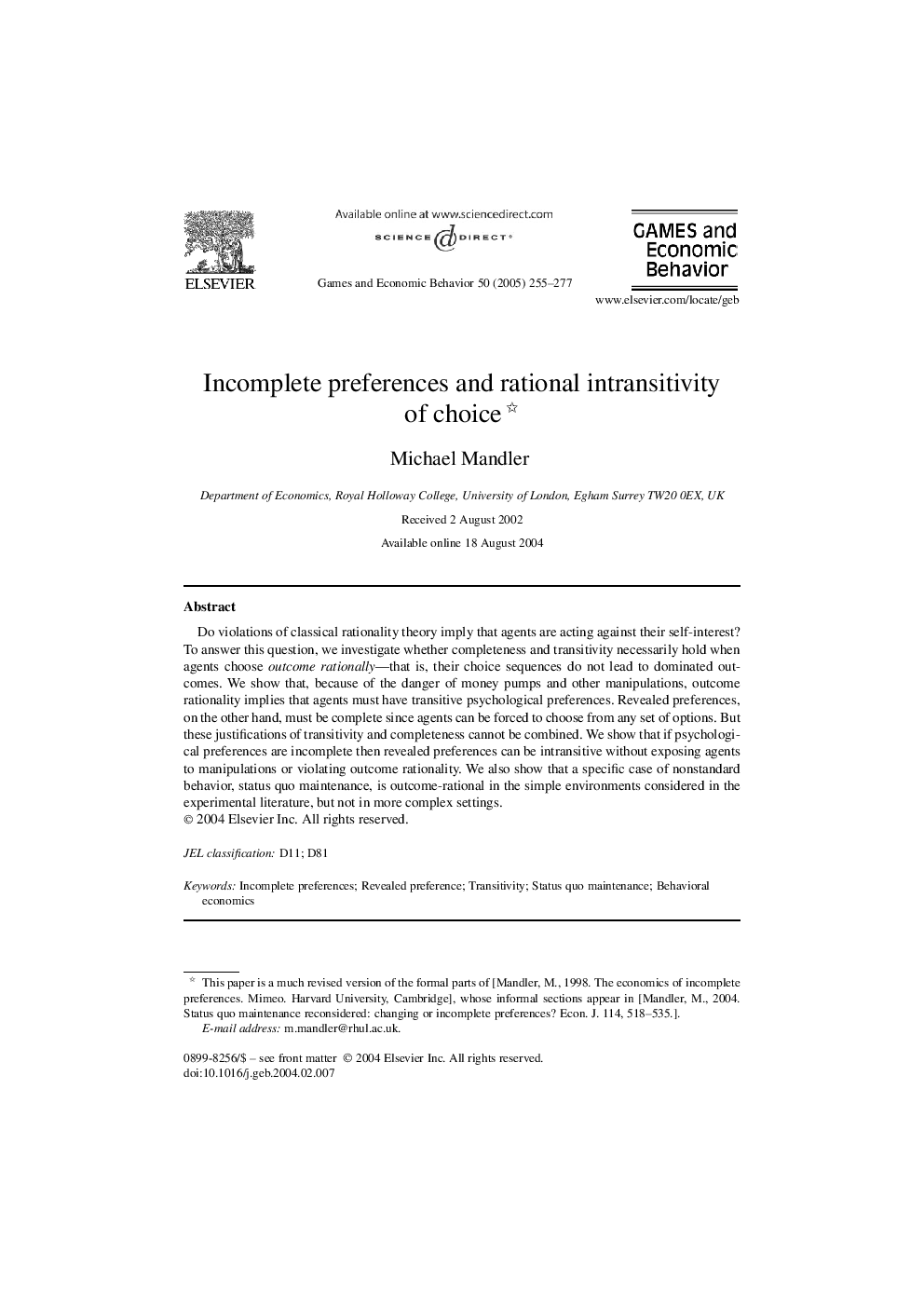| Article ID | Journal | Published Year | Pages | File Type |
|---|---|---|---|---|
| 9551742 | Games and Economic Behavior | 2005 | 23 Pages |
Abstract
Do violations of classical rationality theory imply that agents are acting against their self-interest? To answer this question, we investigate whether completeness and transitivity necessarily hold when agents choose outcome rationally-that is, their choice sequences do not lead to dominated outcomes. We show that, because of the danger of money pumps and other manipulations, outcome rationality implies that agents must have transitive psychological preferences. Revealed preferences, on the other hand, must be complete since agents can be forced to choose from any set of options. But these justifications of transitivity and completeness cannot be combined. We show that if psychological preferences are incomplete then revealed preferences can be intransitive without exposing agents to manipulations or violating outcome rationality. We also show that a specific case of nonstandard behavior, status quo maintenance, is outcome-rational in the simple environments considered in the experimental literature, but not in more complex settings.
Related Topics
Social Sciences and Humanities
Economics, Econometrics and Finance
Economics and Econometrics
Authors
Michael Mandler,
